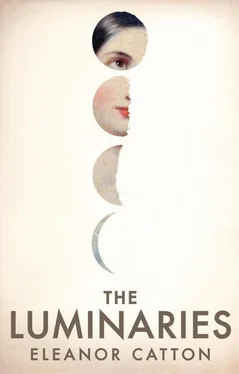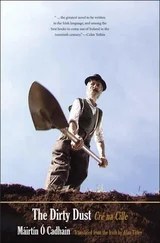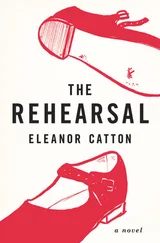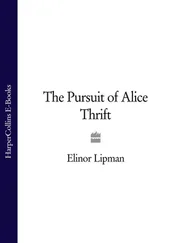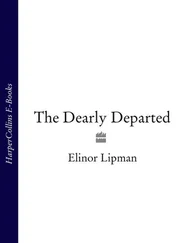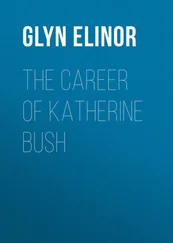‘I saw three men on horseback, yes,’ said Tauwhare, nodding slowly. ‘But before they arrived, I saw one man on foot.’
‘One man alone—well! You’re all right, aren’t you, Ted?’ said Balfour, suddenly very excited. ‘Yes—by golly, you’re all right!’
‘I was not alarmed,’ Tauwhare continued, ‘because I did not know that Crosbie Wells died that night. I did not know he was dead until the morning.’
‘One man—entering the cottage, alone!’ said Balfour. He began to pace. ‘And before Lauderback! Before Lauderback arrives!’
‘Do you wish to know his name?’
Balfour wheeled on his foot. ‘You know who it was?’ He was almost shouting. ‘Yes, good Lord! Tell me!’
‘We will trade,’ said Tauwhare immediately. ‘I will set my price; you will counter. One pound.’
‘Trade?’ said Balfour.
‘One pound,’ said Tauwhare.
‘Hang tight,’ said Balfour. ‘You saw a man go into Wells’s cottage on the day of his death—the very day of his death, two weeks ago? You really saw somebody do that? And you know—without a shadow of a doubt—who that man was?’
‘I know the name,’ said Tauwhare. ‘I know the man. No cheating.’
‘No cheating,’ agreed Balfour. ‘But before I pay—I want to make sure that you do really know him, you see. I want to make sure you’re not taking me for a ride. Big man, was it? Very dark hair?’
Tauwhare folded his arms. ‘Fair play,’ he said. ‘No cheating.’
‘Of course it’s fair play,’ said Balfour. ‘Of course it is.’
‘We will trade. I have set my price at one pound. Now you counter.’
‘Heavy—was he heavy? Thick-set? I’m just making sure, you see. I’m making sure you’re on the level. Then I’ll start trading. You might be cheating me .’
‘One pound,’ said Tauwhare stubbornly.
‘It was Francis Carver, wasn’t it, Ted? Isn’t that right? It was Francis Carver—the sea captain? Captain Carver?’
Balfour was guessing—but it was a good guess. A wounded look passed over Tauwhare’s face, and he exhaled audibly.
‘I said no cheating,’ he said, in a tone of reproof.
‘I wasn’t cheating, Ted,’ said Balfour. ‘I just knew it already, you see. I’d only forgotten. Of course Carver made a trip up to Crosbie Wells’s cottage that day. That was him, wasn’t it—Captain Carver, the man you saw? You can tell me—it’s not a secret, because I already know.’
He searched the man’s face, making sure.
Tauwhare’s jaw was rigidly set. Under his breath he muttered, ‘ Ki te tuohu koe, me maunga teitei.’
‘Well, Ted, you’ve done me a d—ned good turn here, and I won’t forget it,’ said Balfour. By now he was thoroughly saturated. ‘And you know—if I ever need something done, I’ll come to you, won’t I? And you’ll get your coin some other way.’
Tauwhare lifted his chin. ‘You need Maori,’ he said. He did not phrase it as a question. ‘You need Maori, you come to me. I do not do odd jobs. But you need language, and I will teach you many things.’
He did not mention that his skill was as a carver. He had never sold pounamu. He would not sell pounamu. For one could not put a price upon a treasure, just as one could not purchase mana, and one could not make a bargain with a god. Gold was not a treasure—this Tauwhare knew. Gold was like all capital in that it had no memory: its drift was always onward, away from the past.
‘All right—but you’ll shake, won’t you?’ Balfour seized Tauwhare’s dry hand in his wet one, and shook it vigorously. ‘There’s a good man, Ted—there’s a good man.’
But Tauwhare was still looking severely displeased, and he withdrew his hand from Balfour’s grip as soon as he was able. Balfour felt a twinge of regret. It would not do to make an enemy of the fellow—not with so much of this business yet unsolved, he thought. There was a chance that Tauwhare’s testimony might have to be called upon at a later time; there was a chance that he knew something about the relations, whatever they were, between Crosbie Wells and Francis Carver—or between those two men and Lauderback, come to think of it. Yes: it would be useful, to keep the man appeased. Balfour reached into his pocket. Surely he had something small, some token. They were fond of tokens. His fingers found a shilling and a sixpence. He pulled the sixpence out.
‘Here,’ he said. ‘You can have this, if you tell me some Maori. Just like you taught Crosbie Wells. Eh, Ted? Then we’ll have done business, just as you wanted to. All right? Then we’ll be friends. Then you won’t be able to complain.’
He pressed the silver piece into the other man’s palm. Tauwhare looked at it.
‘Now, tell me,’ said Balfour, rubbing his hands together. ‘What does … what does Hokitika mean? Hokitika. Just the one word, that’s all I’m after. And I’d call that a tidy price, by the bye—a sixpence, for a single word! I’d call that a song!’
Te Rau Tauwhare sighed. Hokitika. He knew the sense of it, but could not translate. This happened so often between the languages, English and Maori: the words of one tongue never found their exact equivalent in the other, just as there was no white man’s herb that one might perfectly exchange for puha , and no white man’s bread that exactly called to mind rewena pararoa: however close the flavour, there was always something approximated, something imagined, or something lost. Crosbie Wells had understood this. Te Rau Tauwhare taught him korero Maori without using any English at all: they used their fingers to point, and their faces to mimic, and when Te Rau said things that Crosbie Wells did not understand, he let the sounds wash over him, like prayers, until their meanings clarified, and he could see inside the word.
‘Hokitika,’ said Balfour. He wiped the rain from his face. ‘Come on, mate.’
At last Tauwhare lifted his finger and described a circle in the air. When his fingertip returned to the place from which he had begun, he jabbed his finger, sharply, to mark the place of return. But one cannot mark a place upon a circle, he thought: to mark a place upon a circle is to break it, so that it is not a circle any longer.
‘Understand it like this,’ he said, regretting that he had to speak the words in English, and approximate the noun. ‘Around. And then back again, beginning.’

The Reserve Bank was always very crowded on a Saturday at noon. Diggers stood about with their hands full of gold; the Libra-scales rattled up and down as the ore was measured and recorded; the junior bankers ran back and forth from the archives, checking claim papers, marking tax payments, and receiving fees. Along the wall that faced the street were four barred cubicles where the bankers sat; above them hung a gilt-framed chalkboard, upon which was written that week’s yield in ore, with subtotals for each district, and a grand total for the Hokitika region as a whole. Whenever a sum of raw gold was banked or bought, the chalked numbers were erased and then totalled anew—typically to a murmur of appreciation from the men in the room, and occasionally, if the total was a remarkable one, to a round of applause.
When Balfour entered the bank the attention of the crowd was focused not upon this chalkboard but upon the long table opposite, where the gold buyers, identifiable by the bright copper satchels that they wore upon their belts, inspected the raw ore for purchase. The buyer’s work was slow. He weighed each nugget in his hand, scratched and tested the metal for impurities, and examined it through a jeweller’s loupe. If the ore had been sifted, he filtered it through sieves of matting to check the flakes had not been cut with grit or gravel, and sometimes shook glistering handfuls over plates of mercury, to ensure that the metals bonded as they should. Once he declared the stuff pure and fit to be valued, the digger in question shuffled forward, and was asked to state his name. The Libra-scales were then calibrated until the arm hung parallel with the desk—and then the buyer poured the digger’s pile of gold into the left-hand tray. To the right-hand tray the buyer added cylinder weights, one by one, until finally the scales lurched, and the tray bearing the man’s fortune shuddered, and swung free.
Читать дальше
